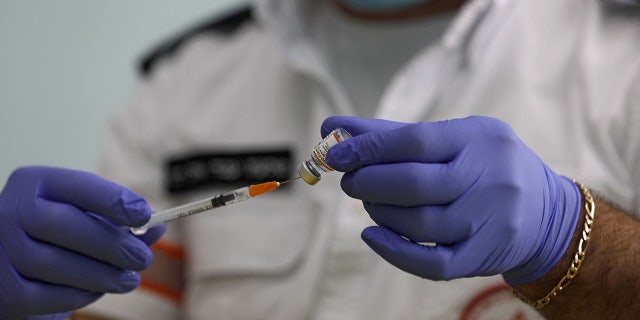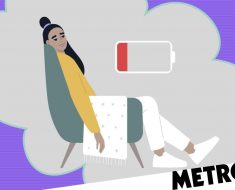
Fox News Flash top headlines for April 1
Fox News Flash top headlines are here. Check out what’s clicking on Foxnews.com.
The Pfizer/BioNTech COVID-19 vaccine provided less protection against the omicron variant than the delta strain in children but did protect against severe illness from both variants, according to a published study in the New England Journal of Medicine on Wednesday.
The report stated that vaccination of 5- to 11-year-olds reduced hospitalizations with COVID-19 by more than two-thirds during the omicron surge and protected against severe illness.
Researchers found that vaccination also reduced COVID-19 associated hospitalizations in adolescents aged 12-18 and protected strongly against severe illness, according to the study that was co-led by Dr. Adrienne Randolph, M.D., M.Sc, at Boston Children’s Hospital along with the Centers for Disease Control and Prevention.
“The reason for a child to get a COVID-19 vaccine is to prevent severe complications of SARS-CoV-2 infection, including hospitalization,” Randolph said in a press release.

child and adult holding red heart with stethoscope, heart health, health insurance concept
(Credit: iStock)
“This evidence shows that vaccination reduces this risk substantially in 5- to 11-year-olds. And while vaccination provided adolescents with lower protection against hospitalization with omicron versus delta, it prevented critical illness from both variants.”
The study looked at data obtained from 1185 patients hospitalized with Covid-19 ranging from 5 to 18 years of age and 1627 control patients of similar age not diagnosed with Covid-19 in 31 pediatric hospitals in 23 states from July 2021 through February 2022.
The researchers found that overall, 88 percent of patients hospitalized with COVID-19 were unvaccinated and 25 percent required life-supporting measures.
They delved further to find that 92 percent of the children ages 5-11 hospitalized with COVID-19 were unvaccinated. Sixteen percent of them were considered critically ill, and required life support interventions such as intubation. Of this group, 90 percent were unvaccinated, according to the study release.
In the adolescent group aged 12-18 that were hospitalized with COVID-19 infections, 87 percent were unvaccinated. The study said twenty-seven percent were critically ill and of those, 93 percent were unvaccinated. Two children died, the release said.

One researcher pushed for school reopenings to mitigate worsening mental health consequences among affected kids.
(iStock)
According to the study, two doses of the Pfizer–BioNTech vaccine were 68 percent effective in preventing hospitalization during omicron among the group of children 5-11 years old. The researchers said in the release that since this age group only recently became eligible for the vaccine, they could not efficiently calculate the numbers of critical illnesses separately.
The study authors also stated that in the 12-18-year-old group, vaccination was 92 percent effective against hospitalization with the delta variant while it dropped to 40 percent effective against the omicron variant.
Despite the decline, the authors of the study said vaccination was 96 percent effective in preventing severe cases of the illness during the delta period and 79 percent during the wave of omicron.
Despite vaccines currently being available for children and adolescents, the researchers said parents still have vaccine hesitancy and as of March 16, only 57 percent of children 12- to 17 and 27 percent of 5- to 11-year-olds had received two vaccine doses, according to the report that cited CDC data gathered by the American Academy of Pediatrics.

An Israeli health worker administers a dose of the Pfizer/BioNTech Covid-19 vaccine to a student at the al-Manahel School in the Druze village of Majdal Shams in the Israel-annexed Golan Heights, on December 12, 2021.
( JALAA MAREY/AFP via Getty Images)
“We hope our findings will help parents make the decision to vaccinate their children and teens against COVID-19,” Randolph said in the release. “The benefits clearly outweigh the risks, as severe infections in childhood can have long-term consequences.”
Source: Read Full Article





